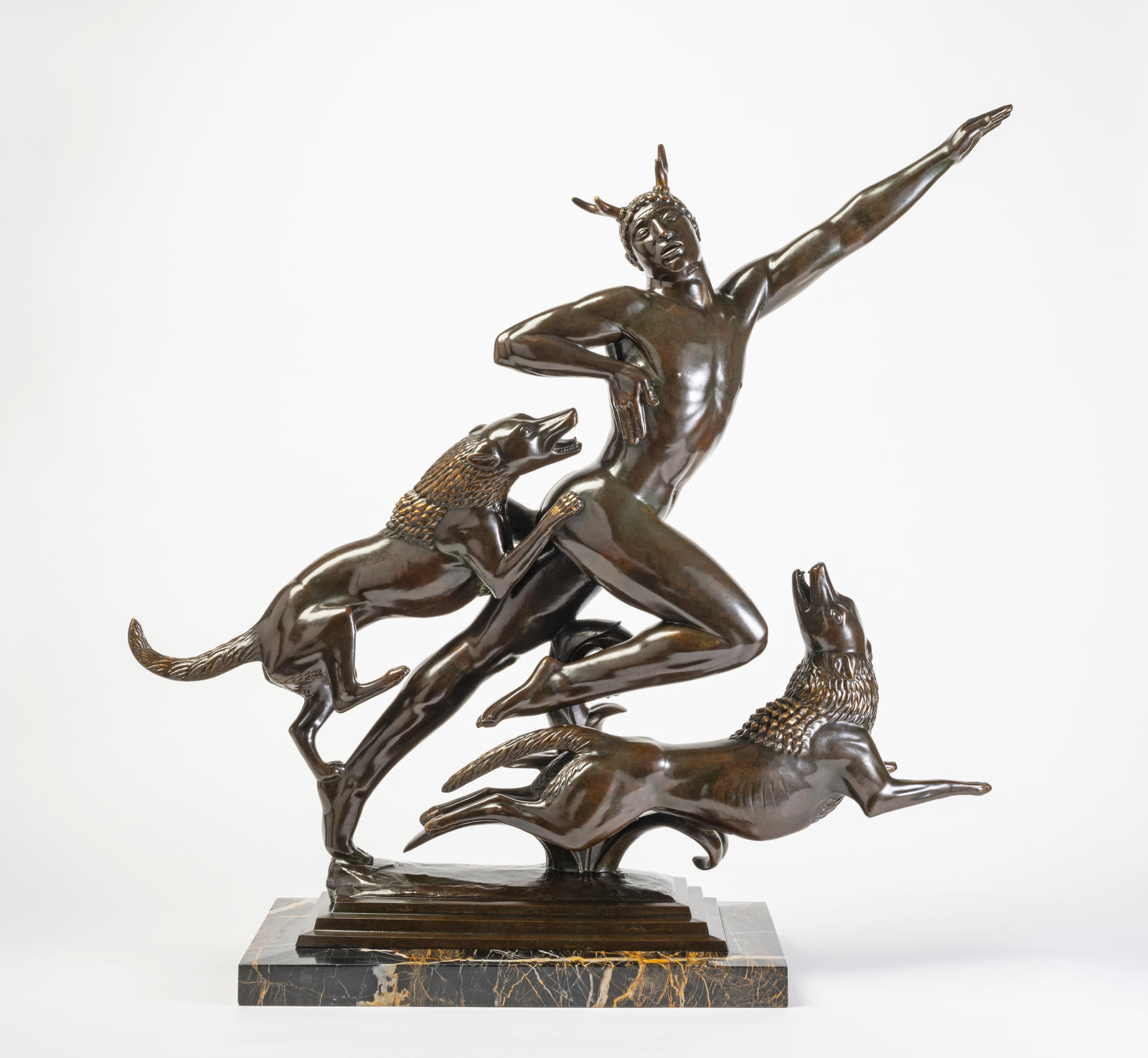
Base: 1 1/2 x 18 1/4 x 11 1/4
Marked: C. Valsuani. Fondeur (along the base)
Artist
Paul Manship’s significance as one of America’s foremost sculptors of the early twentieth century lay in his ability to combine a modernist approach to form within the bounds of figurative art. The variety of his subjects, the infinite beauty of his lines and the pure delight he found in the human figure all contribute to his outstanding reputation.
Manship has been credited with revitalizing the classical tradition and others have countered that he freed the ties that bound American sculpture to realism. It has been argued whether it was he or Saint-Gaudens who ushered in the “national style.” The answer lies perhaps in extraordinary number of students and artist’s who were to be so greatly shaped by Manship’s style.
Manship stands as one of America’s most important American sculptors and certainly as the champion of the Deco style and the “modern aesthetic.” France experienced a golden era in the 19th century between architecture and sculpture and this occurred in America between 1910 and 1935 with Manship was a prominent part of it. Some of New York city’s most celebrated spots are Manship commissions such as the Prometheus Fountain at Rockefeller Center, the reliefs on the AT&T Building, the Rainey Memorial Gates at the Bronx Zoo and many more.
Provenance
Estate of Margaret Leech Pulitzer, New York
Sotheby Parke-Bernet New York, December 1975
Wolf Family Collection No. 0047 (acquired from the above) 1975-2023
Sotheby's New York, April 2023
Exhibitions
Washington, D.C., National Gallery of Art, 2008-23 (on loan)Literature
Edwin Murtha, Paul Manship, New York, 1957, no. 155, p. 164Exh. Cat., St. Paul, Minnesota, Minnesota Museum of Art, Changing Taste in America, 1985, no. 46, pp. 30, 72-73, 75, illustration of another cast
John Manship, Paul Manship, New York, 1989, pp. 101, 111, 113, another cast mentioned
Susan Rather, Archaism, Modernism, and the Art of Paul Manship, Austin, 1993, p. 160, another cast mentioned